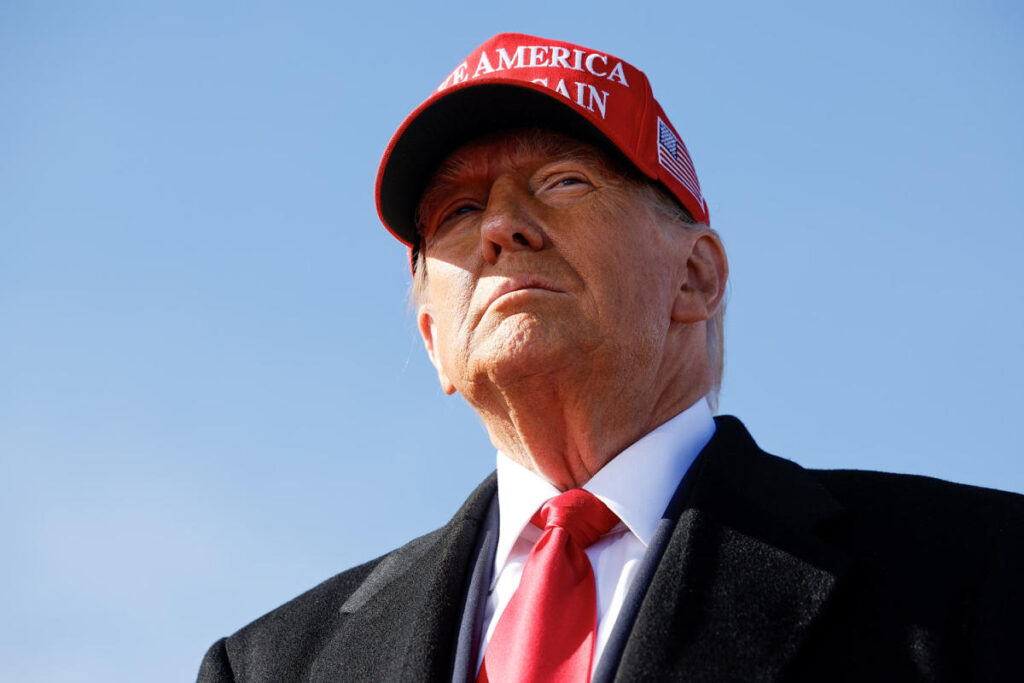President-elect Donald Trump’s selection of Congressman Matt Gaetz as his nominee to head the Justice Department is stirring mixed reactions within the Republican Party. Despite Trump’s robust efforts to gather support for Gaetz through personal calls to key Republican senators, many remain skeptical about his nomination. Reports indicate that Trump’s outreach has been relentless, with the transition team being fully aware that securing Senate approval for Gaetz would be a significant challenge. Gaetz’s controversial past, particularly his involvement in a federal sex crimes investigation for which he was never charged, looms over the nomination, raising questions about both his credibility and the potential repercussions for the upcoming administration.
Adding to the complexity surrounding Gaetz’s nomination is the involvement of Vice President-elect JD Vance, who reportedly assisted Trump in interviewing potential candidates for other key positions, including the FBI. Notably, current FBI Director Chris Wray, who was appointed by Trump and whose term extends until 2027, is now under scrutiny as speculation grows about whether Trump will attempt to replace him. Vance’s recent actions—voting against judicial nominees from the Biden administration and supporting Trump’s picks—illustrate the assertive maneuvering taking place within the Republican leadership to solidify Trump’s cabinet and influence over the Senate.
Trump’s announcement of Gaetz’s nomination came with an acknowledgement of the impending challenges, as both Gaetz and Trump recognized that the Senate confirmation process would be fraught with obstacles. Gaetz himself has been proactive in reaching out to Republican senators to advocate for his nomination; however, doubts persist among several party members. For example, Sen. Kevin Cramer has expressed skepticism about Gaetz’s appointment while maintaining a willingness to consider it further, reflecting the divided stance within the GOP. The potential for a collective disapproval letter from Republican senators, spearheaded by Senate Majority Leader John Thune, symbolizes the internal friction Trump may face as he pushes for Gaetz’s confirmation.
The pace at which Trump is selecting nominees markedly contrasts with previous administrations. By now, Trump has announced 28 senior appointees, including heads of vital departments. This expedited process is notably faster than his initial transition period in 2016 and even eclipses the speed of President Biden’s selections after the 2020 election. This aggressive approach underscores Trump’s intention to formally establish his administration as quickly as possible and signals his commitment to implementing his agenda without delay.
Amid discussions of cabinet positions, a potential return for Ben Carson as Secretary of Housing and Urban Development seems likely, as he and Trump are reportedly in close contact regarding the nomination. In addition, there remains uncertainty around who will lead the Treasury Department, a critical role that many speculate will be influential in shaping economic policy. Elon Musk’s recent involvement in transition discussions, particularly regarding potential appointees, adds another layer of intrigue, highlighting the mix of political and private sector influences that characterize Trump’s administration.
As the nomination process unfolds, the transition team, while confident in Trump’s political capital and ability to persuade fellow Republicans, remains cautious of the challenges ahead. Gaetz’s nomination, while emblematic of Trump’s broader strategy and desired allies in leadership positions, reflects the complex dynamics within the Republican Party and the hurdles that lie in reconciling internal divisions. The coming weeks are pivotal; they will not only define Trump’s early leadership style but also signal how embedded controversies could impact bipartisan relations in the Senate, Ultimately, the fate of Gaetz’s nomination will likely set the tone for Trump’s governance and the efficacy of his proposed cabinet in the face of scrutiny.

